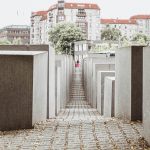Memoirs of Exile
Forced settlements in the Soviet Union took place in a series of brutal operations. A majority of the deportations were carried out in the Baltic States, primarily between 1941-1949. Over 44 thousand families, approximately 130 thousand Lithuanians, were forced to leave their country. These are the facts offered by statistical data. However, Checks&Balances provides you with a story from another perspective – a fragment of Nijole Preiksaitiene diary, a Lithuanian who spent nine years in exile.
‘The black lists were formed during the German occupation. Our family was condemned in 1941. On that fateful evening, three men broke into our house. They checked whether the whole family was present and then read the resolution. I was fifteen back then. My other sisters were thirteen, eight and the youngest one was only three years old. Blankets and sheets were thrown on the ground, and in these bundles the most important things were put: clothes, wool, dishes. We were allowed to take a shot pig, three cut chickens and one bag of wheat with us. Neighbors, who came to give us butter, eggs and cheese, weren’t pushed aside. After that we were placed into carriages and taken away, along with three other families.
At that point, staying together was the most important thing. We stopped near the region of Dūkša and then moved into an animal train carriage. We had little time, so we plucked the chickens and chopped the meat. The bag of wheat was taken away. More and more people came, we were forced to squeeze.
That night we could not sleep. The door was closed and there were only two small windows… There were 19 families in our carriage, 56 people in total. At noon, during the Saint Mass time, we all sang psalms, prayed and cried.
Just as we arrived, ‘death‘ became the principal word, a constant image that would never leave our minds.
It took us 18 days to get to the camp. While driving, we could not prepare food, so during our short stops we tried to buy some herring or a bag of potatoes. People had to excrete just by the train, the guards did not even allow us step from the carriages. Later on we were not allowed to go out anymore. The majority started to excrete inside. It was dreadful. Feces were then spilled out through the window. A horrible, nasty stench. More and more people got ill. We were short on water. Lice started to breed.
Finally, on Friday, June 14th, the carriage stopped.
We were accommodated in a double-storey house: two families on the first floor and the other two on the second. We got the first one – a room of 20 square meters. There was a wooden table, two benches along the wall, a furnace and a couple of bunks. Obviously, our family did not fit. Thus our stuff was thrown away.
That is how we ended up from Eastern Europe to central Asia, a place near Buryatia, in the national sites of the Mongolians. 27 Lithuanian families were resettled in our farm.
Just as we arrived, ‘death‘ became the principal word, a constant image that would never leave our minds. Once formed, the cemetery was rapidly expanding. In 1952 April 22, a ten years old boy was laid there to rest too. He was ill for a while when suddenly a demented drunkard burst into the house, shouting that he would kill all the fascists, and cut the boy with an axe. All of the Lithuanians and some local people gathered to that harrowing funeral. Silent tears were rolling over all our faces. On February 11, 1953 we buried our grandmother there as well.
Our daily lives were inseparable with backbreaking work. The first task that women had to comply with was the wheat weeding. Later on, we had to dig ditches along the road; however, the most tiring chore was haymaking, since we had to cut 15 acres of hay. In return for labor, our family received 65 kg of various grains. That was all we got and thus famine spread inevitably. I spent the last years of my childhood in poverty and humiliation.
In 1958 April 14 our family was destined to come back to Lithuania. 56 years have passed from the days spent in exile, however, I still remember our struggles and the injustice which we had to adhere. The wounds of those who were resettled can never be healed.’
At the moment Nijole Preiksaitiene and her husband live in a small city of Palanga, near the Baltic Sea. Nijole is a poet.
Her granddaughter feels lucky to have her as a grandmother.
Featured Image:
Nel, Lyle. “Siberian Roadway.” Digital image. Flickr. December 27, 2017. Accessed February 15, 2020. https://www.flickr.com/photos/60430646@N06/39595461651/



